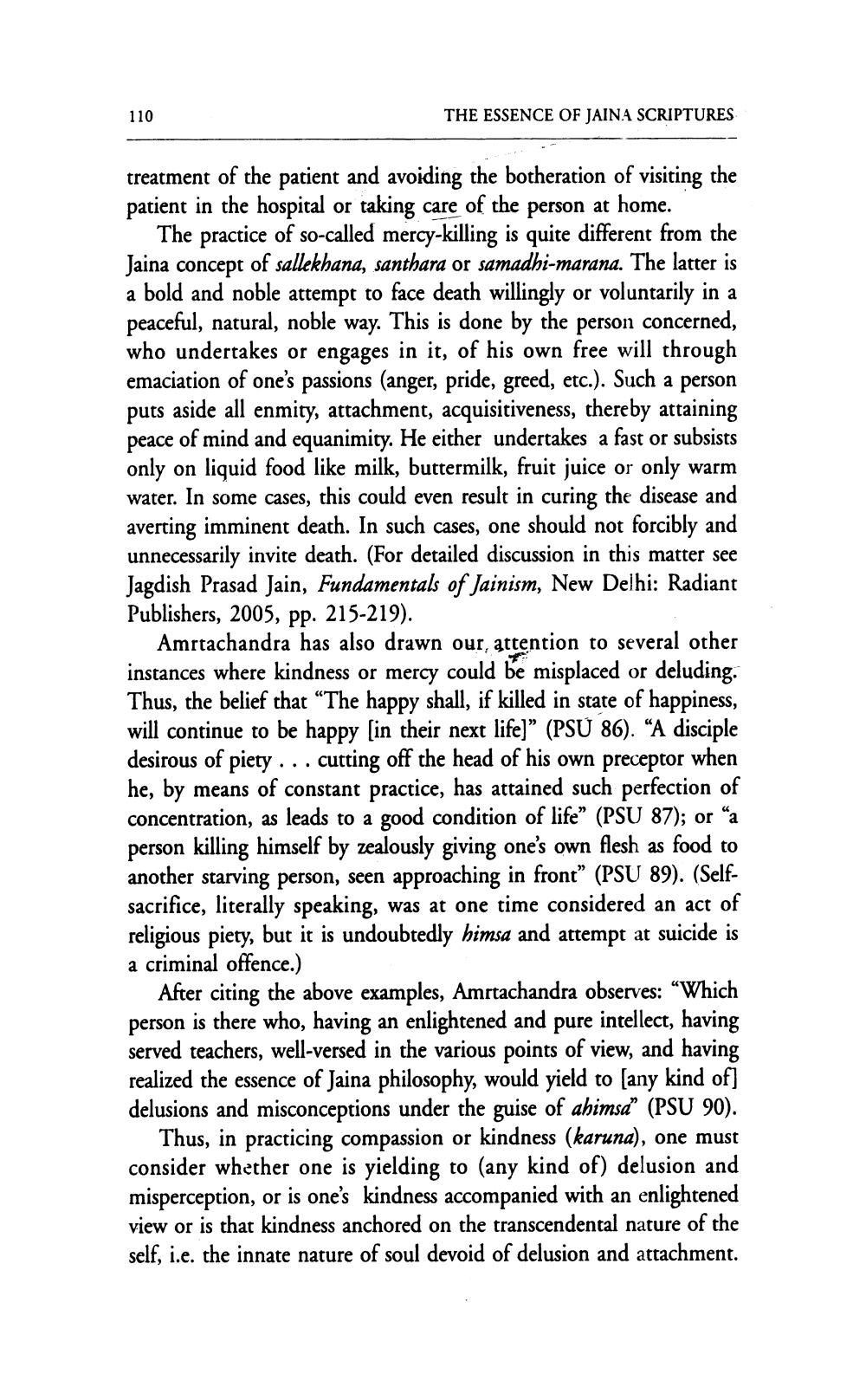________________
110
THE ESSENCE OF JAINA SCRIPTURES
treatment of the patient and avoiding the botheration of visiting the patient in the hospital or taking care of the person at home.
The practice of so-called mercy-killing is quite different from the Jaina concept of sallekhana, santhara or samadhi-marana. The latter is a bold and noble attempt to face death willingly or voluntarily in a peaceful, natural, noble way. This is done by the person concerned, who undertakes or engages in it, of his own free will through emaciation of one's passions (anger, pride, greed, etc.). Such a person puts aside all enmity, attachment, acquisitiveness, thereby attaining peace of mind and equanimity. He either undertakes a fast or subsists only on liquid food like milk, buttermilk, fruit juice or only warm water. In some cases, this could even result in curing the disease and averting imminent death. In such cases, one should not forcibly and unnecessarily invite death. (For detailed discussion in this matter see Jagdish Prasad Jain, Fundamentals of Jainism, New Delhi: Radiant Publishers, 2005, pp. 215-219).
Amrtachandra has also drawn our attention to several other instances where kindness or mercy could be misplaced or deluding. Thus, the belief that “The happy shall, if killed in state of happiness, will continue to be happy (in their next life)” (PSÚ 86). “A disciple desirous of piety... cutting off the head of his own preceptor when he, by means of constant practice, has attained such perfection of concentration, as leads to a good condition of life” (PSU 87); or a person killing himself by zealously giving one's own flesh as food to another starving person, seen approaching in front” (PSU 89). (Selfsacrifice, literally speaking, was at one time considered an act of religious piety, but it is undoubtedly himsa and attempt at suicide is a criminal offence.)
After citing the above examples, Amrtachandra observes: “Which person is there who, having an enlightened and pure intellect, having served teachers, well-versed in the various points of view, and having realized the essence of Jaina philosophy, would yield to any kind of] delusions and misconceptions under the guise of ahimsa" (PSU 90).
Thus, in practicing compassion or kindness (karuna), one must consider whether one is yielding to (any kind of) delusion and misperception, or is one's kindness accompanied with an enlightened view or is that kindness anchored on the transcendental nature of the self, i.e. the innate nature of soul devoid of delusion and attachment.




